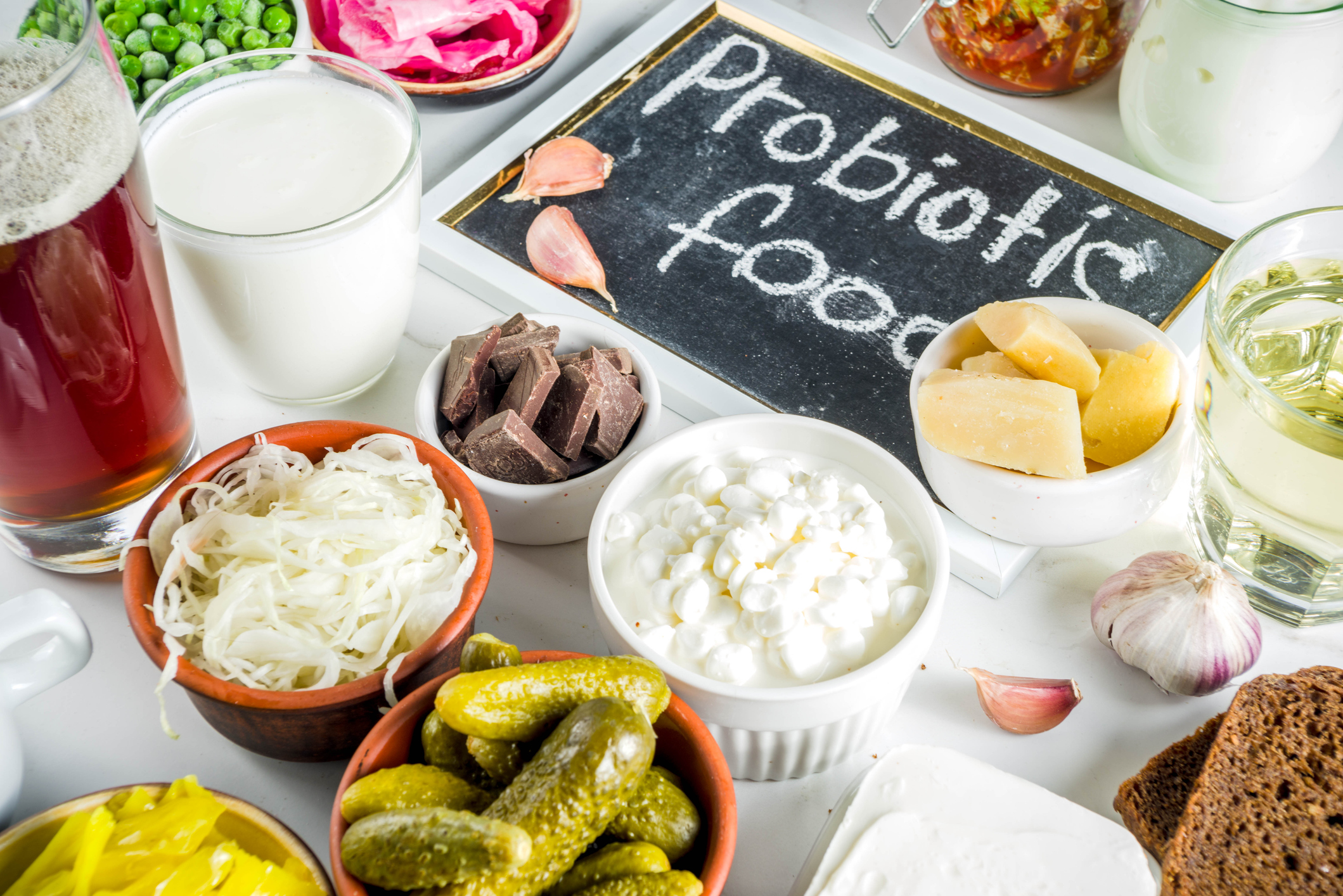Probiotics 101
Posted Nov 2021
By Delta Dental of Arkansas
Tagged Bifidobacterium, Lactobacillus, tempeh, miso, kombucha, sauerkraut, kimchi, kefir, yogurt, probiotic supplements, fermented foods, friendly bacteria, healthy bacteria, probiotics
Probiotics 101 | What are they? Where are they? What are their oral health benefits?

Probiotics have generated much excitement in the last 10 years or so, typically in connection with gut health. Their potential benefit to oral health is perhaps less well known.
Let’s drill down a bit to differentiate the fad from facts.
What are probiotics?
Probiotics are live bacteria and/or yeasts with health benefits. For that reason, they are called “friendly” or “healthy” bacteria. The most common are Lactobacillus and Bifidobacterium.
Different types of probiotics have different effects. For example, probiotics that aid your digestive system are not identical to those that benefit your oral health. But in general, all probiotics have two major functions:
- Promote the growth of good bacteria to keep you healthy.
- Reduce the growth of infection-causing bacteria.
Where can probiotics be found?
Probiotics occur naturally in the body but are also found in fermented foods. Fermentation is a metabolic process that converts sugar or starch into an alcohol or acid.
Humans have fermented foods since prehistoric times, especially dairy products and vegetables.
Today, these foods are the best sources of probiotics:
- Most yogurts (Look for the “live and active cultures” seal.)
- Cultured cottage cheese and buttermilk
- Soft cheeses
- Kefir (fermented milk)
- Miso (fermented soybean paste)
- Tempeh (fermented soybean blocks)
- Kimchi (fermented vegetables, especially cabbage, originating in Korea)
- Sauerkraut (fermented cabbage, originating in Germany)
- Kombucha (fermented black or green tea)
These foods are widely available at grocery stores, supermarkets and farmers’ markets.
Eating a healthy diet that includes some fermented foods is the best way to keep a healthy balance of friendly and not-so-friendly bacteria. How many fermented foods have you sampled?
Try these recipes:
Should you take probiotic supplements?
Many probiotics are available as dietary supplements. Unlike the drug industry, supplements require no FDA approval before they are marketed, and their effectiveness is unsubstantiated.
They can even have a harmful effect on some people with compromised immune systems or severe illnesses. So check with your doctor or dentist before taking unregulated, commercial probiotic supplements.
In the meantime, stick to yogurt and other foods rich in probiotics.
Are probiotics good for your teeth?
Some studies have shown a beneficial effect of probiotics on oral health. More research is needed, but initial findings indicate that probiotics may help
- Fight plaque and tooth decay
- Stop bad breath
- Reduce inflammation from gum disease and even
- Prevent oral cancer.
However, no matter the good news about healthy bacteria, keep up good oral hygiene. Brush and floss daily and see your dentist regularly for check-ups and professional cleanings.
Dental Insurance 101
Regular dentist visits are never a fad but always best practice. A dentist can make sure your dental hygiene habits are on track and spot any emerging oral health issues.
If you’re looking for a dentist in your area, try this useful tool.
If you’re shopping for dental insurance, check out our different dental (and vision) plans for individuals, families and groups. You can even enroll online.

